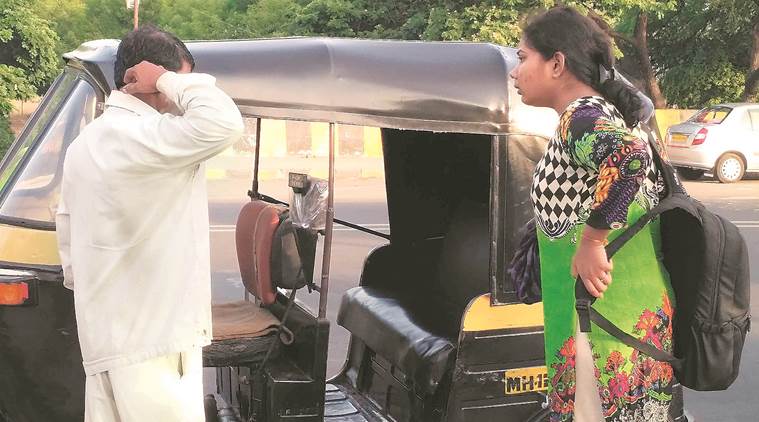 The observation came during the hearing of a plea by Delhi Autorickshaw Sangh who sought direction to exempt autorickshaws from installing GPS/GPRS in view of the ‘Nirbhaya Scheme’ launched by the Centre in 2016. (Representational image/Express)
The observation came during the hearing of a plea by Delhi Autorickshaw Sangh who sought direction to exempt autorickshaws from installing GPS/GPRS in view of the ‘Nirbhaya Scheme’ launched by the Centre in 2016. (Representational image/Express)
The Delhi government’s move to equip all autorickshaws in the city with GPS devices and receipt printing machines received the Delhi High Court’s backing on Wednesday, which sought to know from the Centre why it had exempted three-wheelers from location tracking device in the present scenario where “people are being raped”.
“You (the central government) know what is happening nowadays. In this present scenario, is it appropriate to exempt autorickshaws from GPS/GPRS?” Justice Rajiv Shakdher asked the central government standing counsel, Anurag Ahluwalia.
It said, “Are you not going to have safety measures for passengers, such as the need for GPS device and a ‘panic button’ for the passengers in an atmosphere where people are being raped.”
The observation came during the hearing of a plea by Delhi Autorickshaw Sangh who sought direction to exempt autorickshaws from installing GPS/GPRS in view of the ‘Nirbhaya Scheme’ launched by the Centre in 2016.
Advocate Barun Kumar Sinha, appearing for the union, told the court that “it is surprising that although two and three wheelers have been exempted from installing GPS/GPRS, the Delhi government has continued with the process for three-wheelers… This is contrary to the notification of the Centre.”
Ahluwalia said, “As per the notification by the Ministry, all public service vehicles, (except two- and three-wheelers, e-rickshaws) have to be equipped with or fitted with vehicle location tracking device and one or more emergency buttons”.
He said, “We have a policy for pan India. The Delhi government can come up with their own policy. There is no embargo”. To which the court sought to know whether their notification would come in the way of the one by the Delhi government. The next date of hearing in the case is November 15.
Ahluwalia told the court that the Delhi government will have to say whether it will follow the central government notification, which came into effect from April 1 this year.
To this, the bench asked the counsel for the Delhi government to inform it, on the next date of hearing on November 15, whether they are going to follow the Centre’s notification or will go by their 2010 order making installation of GPRS/GPS for three-wheelers mandatory.
It also issued a notice to the Centre, Delhi government and the Delhi Integrated Multi-model Transit System, which is the appointed agency to regulate autorickshaws for fitting of GPS/GPRS by way of communication device, printer for printing of receipt and other equipment.
Apart from seeking exemption from installing GPS/GPRS system in their vehicles, the autorickshaw union has, as an alternative, sought regulation of the mechanism. In their petitions, the auto drivers argued that they could not be forced to pay for GPS installation as they are daily wage earners.
The Delhi government introduced the policy to monitor the movement of autos to ensure security of commuters, particularly of women, children and elders.